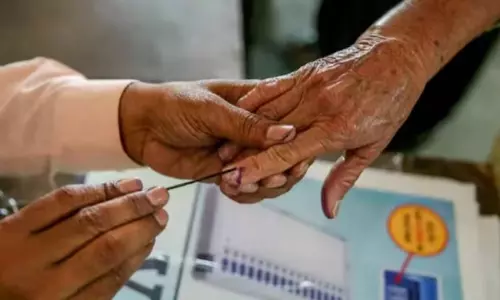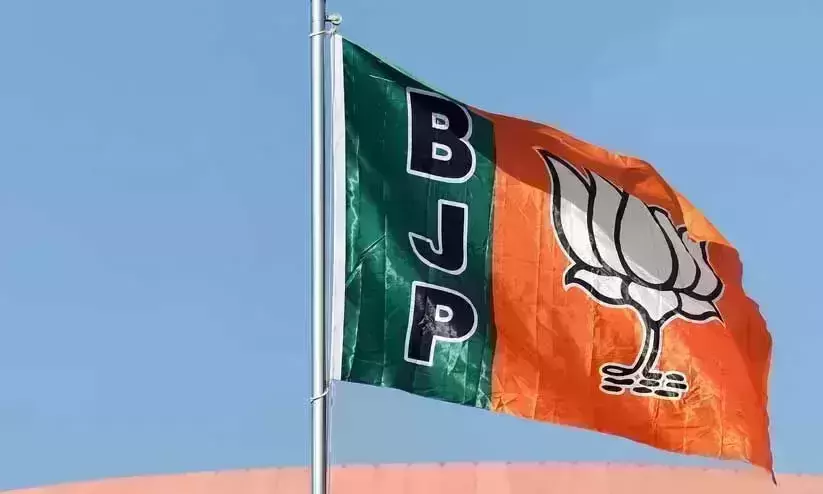
Another split in Kerala Congress
text_fieldsRight after the demise on 9 April of Kerala Congress leader and former Kerala minister KM Mani - who had straddled Kerala politics like a colossus for over half a century - many had predicted that his party would be heading for a split before long. Two months into that , it has literally become a relity.
The bone of contention that led to the vertical split, is who should succeed Mani as chairman of the party. Mani's son and member of Rajya Sabha, Jose K Mani convened a parallel meeting of the state council members and took charge as chairman after proving his majority at that forum. This left Jose K Mani's rival and working president and his supporters with no option other than to go for a legal remedy to continue as the head of the party. As a result, Jose's election as chairman has been staed by Munsiff Court, Thodupuzha. Joseph has also the option of reviving his erstwhile 'Joseph group' and functioning as a new party. Whatever that be, the latest split in Kerala Congress is nothing surprising or unnatural. For, in its 56 years of existence the party has already undergone division at least 11 times, plus innumerable other minor splits. Although the party was formed with the name 'Kerala Congress' in 1964, except for a short duration, it was never known by a name without an English alphabet in bracket to denote which faction.
For a party with a dubious distinction for 'growing as it breaks, and breaking as it grows', this split is only a continuation of its tradition. In the latest instance, since the internal squabbles in the party over the candidate selection for Kottayam constituency in the recent Lok Sabha election, there were signs of a division. It was known to all that there was no love lost between Joseph and Mani, despite both having merged into one party nine years ago. Soon after Joseph was denied the Kottayam seat, there were reports that the party was heading to a split which however did not happen that soon. And for his part, Joseph, withouth outwardly showing any grudge over being denied a seat, actively took part in the party's election campaign. It was during that period that KM Mani's unexpected death happened. In the debate about who should lead the party, the two names that came up were of PJ Joseph with his seniority as the basis, and of Jose K Mani, with the privilege as KM Mani's son. That naturally led to a tussle within the party. When Joseph grabbed the leader's seat in the assembly, Jose K Mani retaliated by getting elected as party chairman on the strength of the majority in the state council. Joseph argues that such an election of chairman has no basis as per the party's constitution. Using that contention, Joseph has secured a stay for Jose's election. Joseph's faction approached the court also as part of pre-empting Jose's moves to use his authority as chairman to oust him from the post of parliamentary party leader. Such legal battles are nothing new in the history of the party, and there are even instances of street fights between workers reflecting the legal fight.
None of the splits and mergers, including the latest, was not in the name of any political position or ideological difference of opinion. Everything that happened was about grabbing authority. Kerala Congress is a party that entered Kerala's political scene with stress on the relevance of regional parties based on a philosophy of federalism, and thus found its place in the corridors of power. What KM Mani mooted through the Aluva resolution of 1973, as the goal of Kerala Congress, was a constitutional amendment giving more autonomous powers to state governments. But, the party not only failed in translating that to reality politically, it even fell into the abyss of conventional pragmatic/parliamentary politics to such an extent as to find a recovery tough, That was how the party's working class theory came to be ridiculed as prostration to win a penny either with 'split or merger'. The party's conscience also had to suffer being portrayed as elastic like a rubber that can stretch when pulled and shrink back to previous form when released. Although it is an open secret that the Christian church has a sway over the party, these parties have never in the past been able to take the side of Christian values of rectitude and spirituality. On the contrary, its leaders tried to get entrenched in the dark recesses of power plagued by corruption, nepotism and confrontations. It is also true that in this game of musical chair, our coalition mechanisms have lent ample support and encouragement. Regardless of merger or split, a berth in either of the fronts is guaranteed to the party. That is the reason why one can see the fossils of Kerala Congress in all the three alliances of the state. And our land has also been witness to the picture of both factions co-existing in the same front after the split. That will perhaps happen again here. Or else, Joseph faction may even switch the alliance. All the same, there is no doubt that both the parties will continue in Kerala politics. As long as the mainstream parties do not have precise positions in the matter of forming alliances, it may be our fate to live with such political vulgarities.























